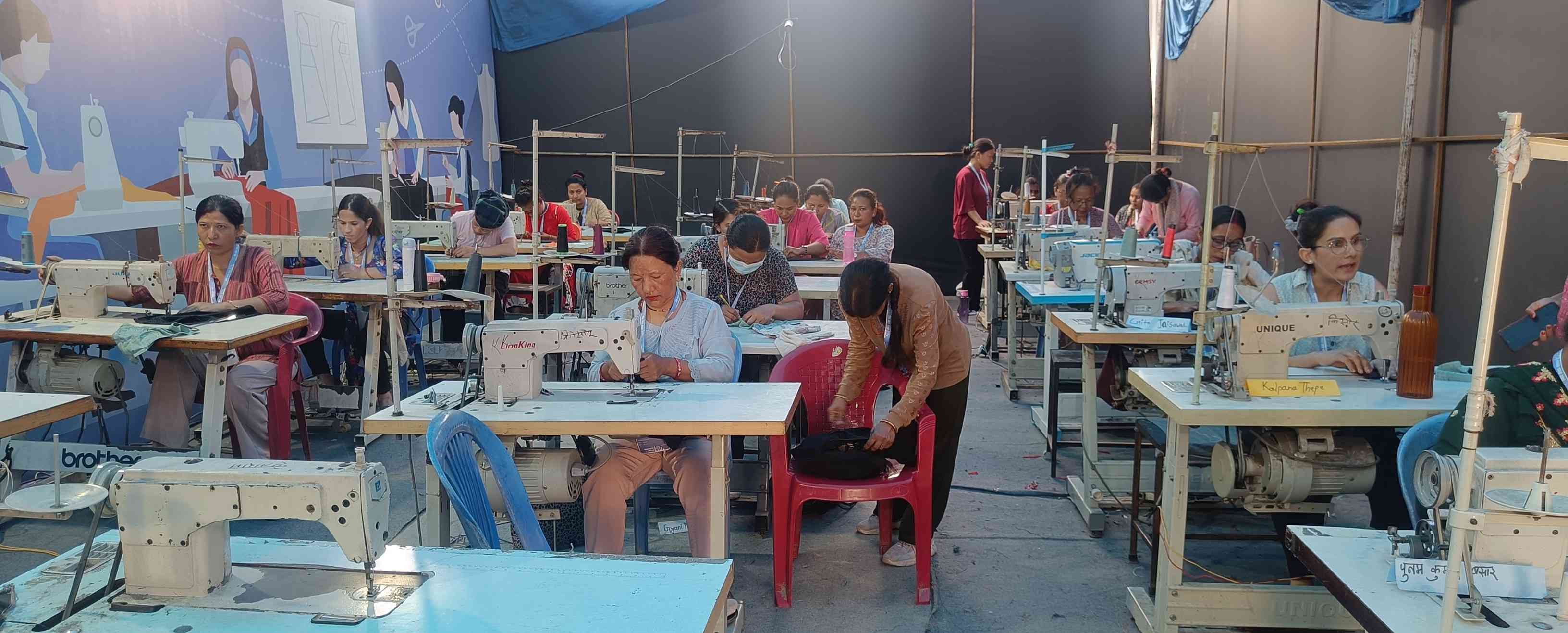
Kathmandu, June 9 – In a significant move to equip a large number of unemployed youths with skills and inspiring them to become self-employed, the Skill Fair 2025 is currently underway at Tundikhel, a large ground in the center of Nepal’s capital Kathmandu.
Launched on May 21, the month-long fair organized by the Kathmandu Metropolitan City (KMC) aims to train 2,424 individuals across 10 sectors and 37 different professions, significantly expanding on the previous year’s edition.Differently abled youths are also participating in the Skill Fair.
This is the second year KMC has held the fair as part of its pride project aimed at addressing youth unemployment by providing practical, market-relevant skills. The initiative is being carried out in collaboration with various government agencies, NGOs, private institutions, and donor organizations, including the Ncell Foundation.
According to Engineer Shailendra Jha, coordinator of the Skill Fair Implementation Committee, preparations for the fair included coordinated efforts to ensure high-quality training delivery through experienced partners.
The training, which spans 100 hours over 30 days, covers a diverse range of fields and sectors. These include high-demand areas such as multimedia, information and communication technology, digital marketing, programming languages (Dot Net, Java, PHP) electrical and electronics repair (laptop, AC/refrigerator, CCTV, and mobile repair), garment fabrication, automobile maintenance, art and sculpture, agriculture, personal care, beauty and grooming, and even stock market basics as well as specialized skills for supporting individuals with disabilities. This year, courses have been introduced in cutting-edge areas such as cybersecurity, digital marketing, artificial intelligence applications, fiber optics, drones, and robotics. In hospitality, participants are trained as baristas, waiters, and in fast food and bakery services. Training in the automobile sector includes EV maintenance and repair of two-wheelers and light vehicles. Art and sculpture training features Thanka painting and terracotta, along with astrology and priesthood. Additional courses include flower decoration in agriculture and stock market basics.
In an effort to promote inclusivity, KMC has introduced a new training category titled “Special Ability Support Skill,” designed for facilitators working with children with hearing impairments, Down syndrome, and autism. The courses in this category include housekeeping and care services. Eligible participants must be Nepali citizens between the ages of 18 and 58.
Building on the success of last year’s fair, which trained 2,081 participants in 29 trades, this year’s expanded program demonstrates a growing public interest in skill-based training and a fervent desire among the thousands seeking to improve their livelihoods by enhancing their skills in the areas of their liking and contribute meaningfully to Nepal’s evolving job market.